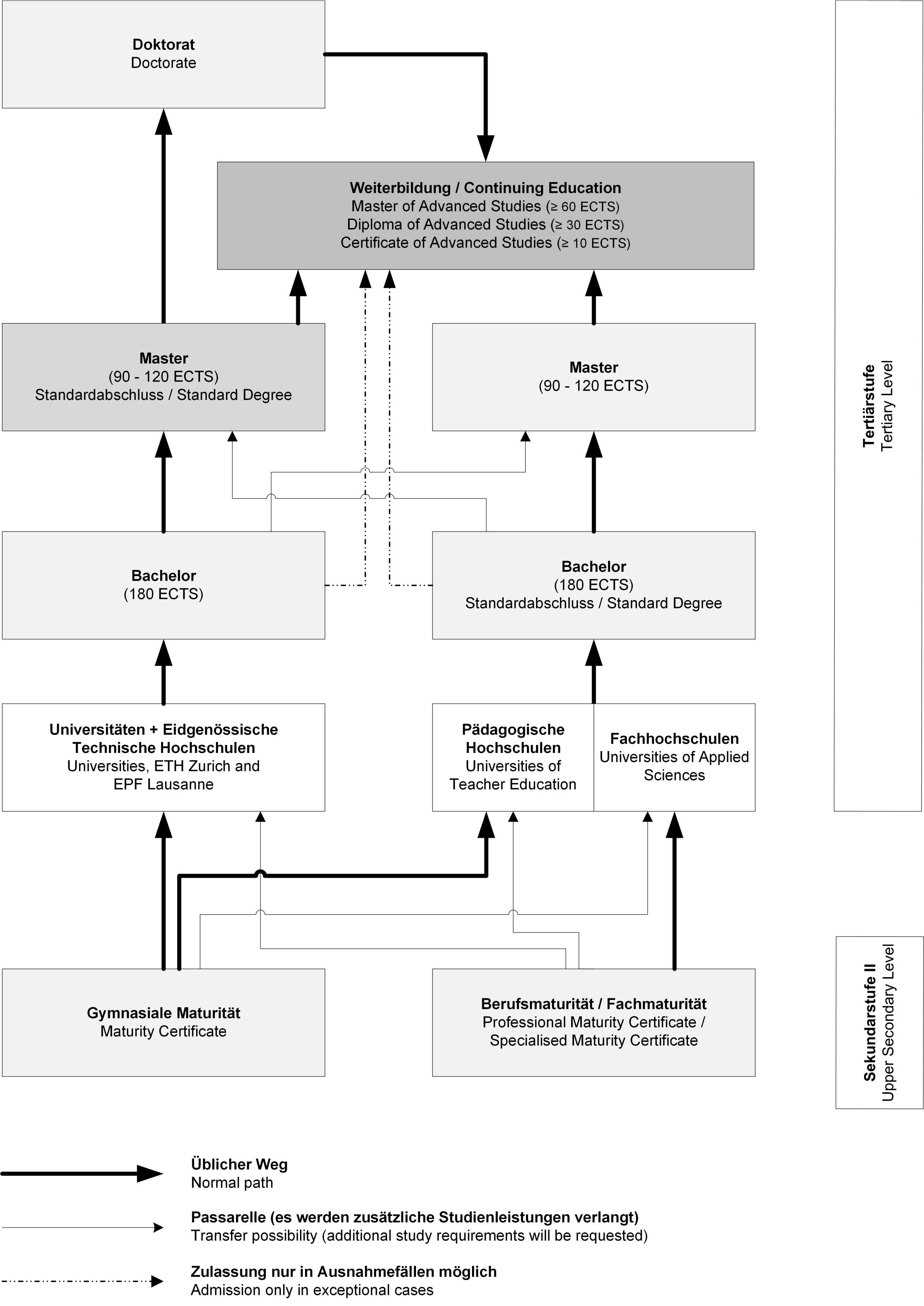University continuing education
In Switzerland, university continuing education begins after initial studies are complete. It is intended for academically trained specialists and managers working in the respective field and presupposes a university degree (usually a Master’s degree) and professional experience. University continuing education enables you to specialise and to extend and deepen your knowledge and skills.
In contrast to many other countries, continuing education at Swiss universities is thus not a means of catching up with a Bachelor’s or Master’s degree.
University continuing education differs didactically, formally and in content from initial degree courses. They generally take place in parallel with work, combine high academic requirements with a practical approach, and are based on state-of-the-art research findings.
Universities and universities of applied sciences
- Swiss universities and universities of applied sciences apply the same designations in their continuing education offering. However, their admission requirements and the orientation of their programmes differ:
- Universities are usually more academically oriented. Persons who hold a Master’s degree and have professional experience are admitted.
- Universities of applied sciences tend to be more practice-oriented and usually require a Bachelor’s degree and professional experience.
- This difference stems from the fact that studies at a university of applied sciences normally conclude with the Bachelor’s degree, while university students usually complete a Master’s degree.
The Swiss university system allows both types of university to offer customised programmes to their respective target groups.
The Swiss university System
In Switzerland university continuing education is institutionally anchored. It is oriented towards the European higher education area and is integrated in the external page National Qualifications Framework.
